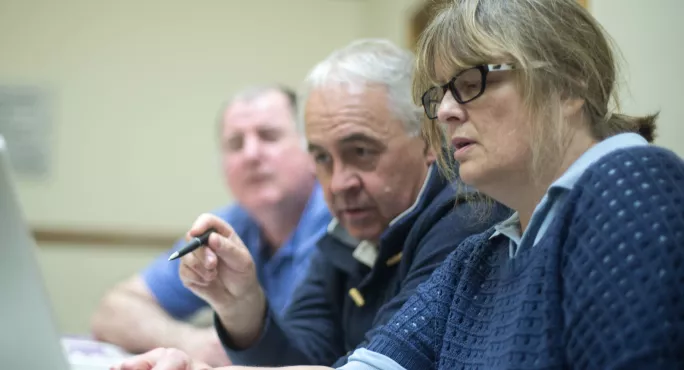This week, Robert Halfon MP announced a new inquiry into lifelong learning after calling poor access to adult education a “glaring social injustice”.
The inquiry - undertaken by the education select committee which is chaired by Mr Halfon - is asking for submissions about the state of adult skills and lifelong learning in England.
But why is an inquiry needed? And what are the issues with the current provision on offer?
Background: MPs to launch inquiry into lifelong learning
News: Halfon: Create an adult education centre in every town
Opinion: Why lifelong learning is so powerful
At the launch of the inquiry at the Centre for Social Justice, James Scales, head of education at the centre, said that there were four extremely worrying trends:
A dip in level 2 and 3 qualifications
Mr Scales called level 2 and 3 qualifications “crucial stepping stones to higher education - where the returns are even greater”. He pointed towards the decline of people aged 19 and older completing the qualifications - and said there were no signs that would change anytime soon
A dip in learners taking part in part-time higher education
“Part-time higher education, a key motor of lifelong learning, is also stuttering. Numbers fell by 54 per cent between 2011 and 2018 and if we look at disadvantaged learners specifically we see that that rate is even higher at 65 per cent,” said Mr Scales.
He called the numbers staggering - and said: “Imagine if was happening in full time higher education.”
A lack of employer training
Mr Scales said that employer training has stagnated. “If we look at figures between 2005 and 2015, the amount spent on this type of training fell by 14 and half percent, and since then it’s remained flat,” he said.
A dip in adults taking part in any type of learning
Mr Scales pointed towards the adult learning survey in 2017 that says 37 per cent of adults were engaged in any form of adult learning - which was a record low since the figures were reported.
So what can we do about it? Mr Halfon has suggested community learning centres in every town, a “social justice tax break” for business and providing tuition fee support for disadvantaged students on part-time higher education courses.
Joanna Cain, deputy chief executive of the Workers’ Education union, said that wider, systematic things needed fixing.
Constant approach to outcomes
Ms Cain said that at the moment, different providers measure outcomes differently. “We’re encouraged that some of the new devolved authorities we’re working with are talking to us and other providers about social value measures, those are often more than simply getting a job, however important that is,” she said.
She called for a consistent approach to outcomes, and a better understanding of the outcomes from adult education across a range of areas.
A joined-up post-18 education system
Ms Cain said that the dramatic decline in participation was a result of a “fractured and under-invested system”.
“The distinctions between adult and further and higher education exist in our world, but they don’t mean anything in the world of the students that we’re working with and are trying to reach.
“They are often experiencing diminishing opportunities and complicated lives with competing priorities. It’s really important we understand very complex journeys that are often linked to sense of self-worth, and the feelings about what expectations there are of you that enable people to get back into learning,” she said.
She urged the need for clearer pathways and a joined-up post-18 education system.
Local provision
Mr Halfon stressed the importance of local provision, and Ms Cain agreed. She said the WEA welcomed the Augar proposal for a national education network, and that local delivery was crucial.
“People need something nearby and so they’re encouraged to get involved with their peers through short courses that are around,” she said.
The deadline for submissions to the inquiry is 15 August. You can send yours here.





